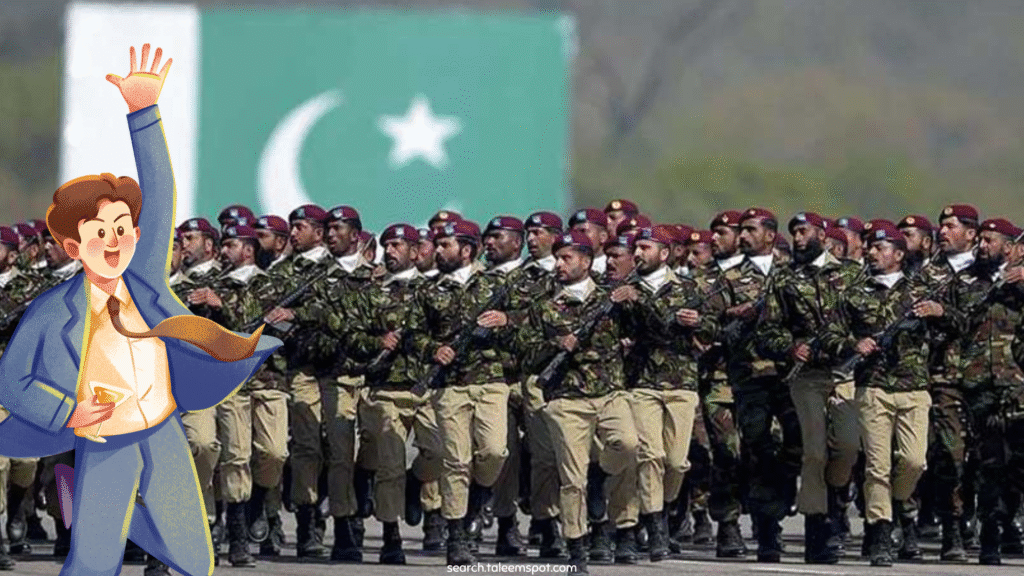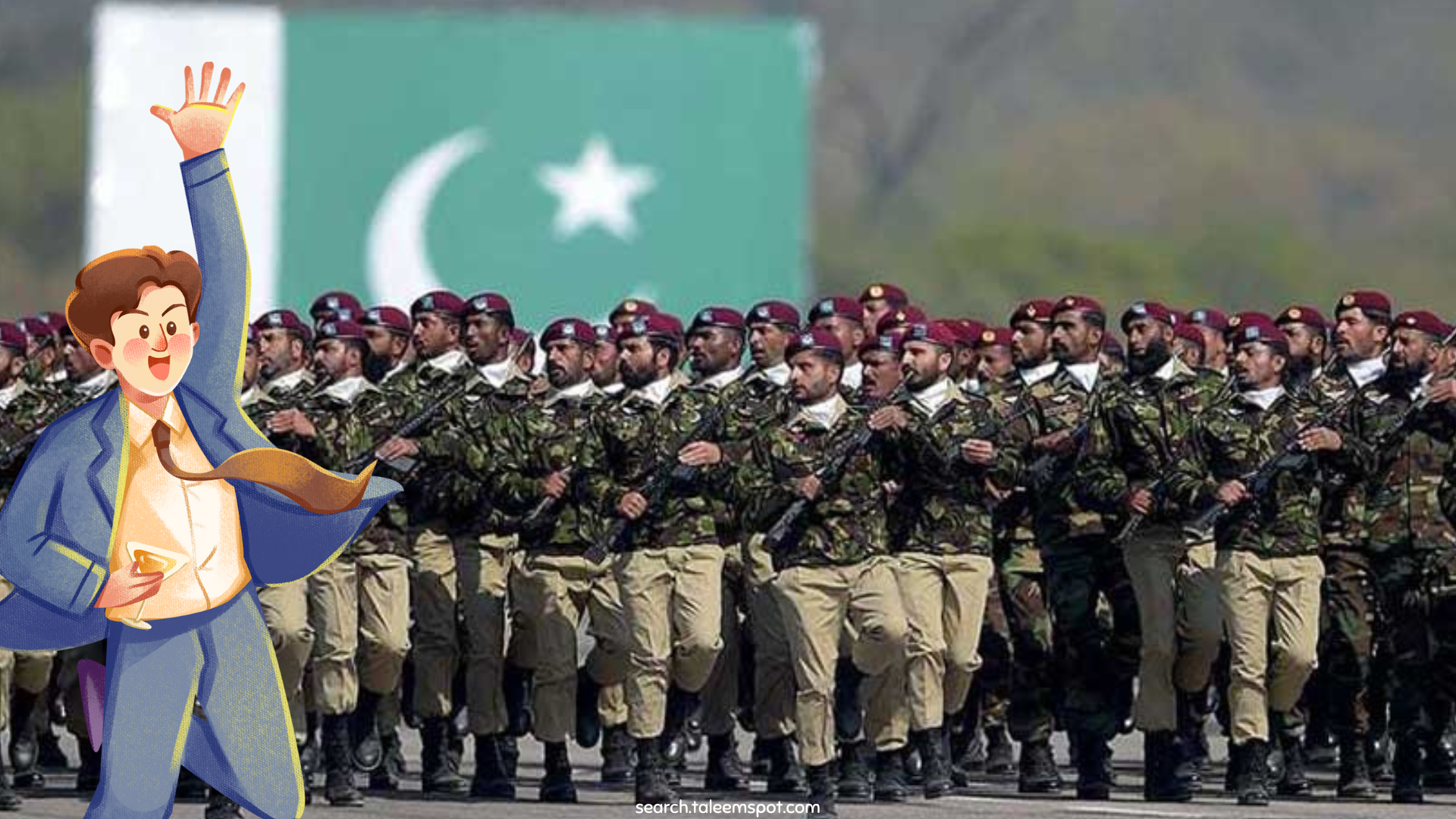Introduction
The Pakistan Army is one of the most prominent institutions in the country, tasked with defending national sovereignty and playing a pivotal role in internal and external security. Given the sensitive and disciplined nature of military service, it is governed by a distinct and stringent legal framework known as the Pakistan Army Act, alongside associated rules and regulations. These laws are specifically designed to maintain order, discipline, and operational effectiveness within the ranks of the military.
This article delves into the origins, structure, and operational scope of Pakistan Army laws, examining their importance in military governance, justice administration, and national security.
Historical Background
The foundation of Pakistan’s military legal framework was inherited from the British colonial system. The original Indian Army Act of 1911 formed the basis of military law in the subcontinent. After independence in 1947, Pakistan continued to operate under this legacy until it formalized its own code.
Pakistan Army Act, 1952
Enacted by the Parliament in 1952, the Pakistan Army Act replaced the colonial-era regulations and became the principal legal instrument governing the Pakistan Army. The Act outlines the structure, procedures, rights, and penalties applicable to army personnel, from enlisted soldiers to commissioned officers.
Key Features of the Pakistan Army Act, 1952
1. Applicability
The Act applies to:
- Regular army personnel (officers and soldiers)
- Members of auxiliary forces, such as the Frontier Corps or Mujahid Force (in specified conditions)
- Civilians accompanying the military or serving in support roles (in times of war or emergency)
2. Code of Conduct and Discipline
The Act lays down a strict code of discipline that covers:
- Obedience to orders
- Conduct unbecoming of an officer or soldier
- Desertion or absence without leave
- Mutiny and insubordination
- Acts prejudicial to good order or military discipline
3. Offenses and Punishments
Army personnel may face penalties for offenses such as:
- Disobedience or insubordination
- Cowardice in the face of the enemy
- Spying or treason
- Theft or misappropriation of government property
- Sexual misconduct or harassment
Punishments range from fines and demotion to imprisonment and even the death penalty, depending on the severity of the offense.
Military Justice System
The Pakistan Army operates its own judicial structure, parallel to the civilian judicial system, to ensure swift and effective adjudication of offenses under military law.
1. Court Martial System
The main trial mechanism under military law is the court-martial, which can be of various types:
- General Court Martial: The highest form of military trial, capable of imposing the maximum punishments including death or life imprisonment.
- District Court Martial: Deals with mid-level offenses and can award sentences including imprisonment.
- Summary Court Martial: Handles minor offenses, usually at the unit level, with limited sentencing powers.
Each court-martial is composed of officers senior to the accused and follows a set legal procedure.
2. Judge Advocate General (JAG) Branch
The JAG Branch serves as the legal advisory and prosecution arm of the Pakistan Army. It ensures that court-martial proceedings are conducted according to law and justice, and offers legal counsel to military commanders.
Appeals and Reviews
While military courts operate independently, there are avenues for appeals and reviews to ensure transparency and fairness.
- Petitions to the Chief of Army Staff (COAS): A convicted individual can appeal to the COAS for a review of the sentence.
- Judicial Review by Civil Courts: In certain cases, especially those involving fundamental rights, the civilian judiciary, including the High Courts and Supreme Court, may exercise jurisdiction to examine the legality of court-martial decisions.
- Military Appellate Tribunal: In some instances, a special tribunal may be set up to review cases involving complex legal issues or significant consequences.

Special Provisions and Amendments
Over the years, the Pakistan Army Act has undergone several amendments to address evolving challenges, especially concerning national security and counterterrorism.
Military Courts for Civilians
In response to rising terrorism, the 21st Constitutional Amendment (2015) allowed for the trial of civilians in military courts for terrorism-related offenses. These courts had jurisdiction over:
- Attacks on armed forces or law enforcement
- Espionage or waging war against the state
- Kidnapping or murder for terror purposes
While controversial and time-bound, these military courts played a significant role in addressing high-profile terrorism cases.
Protection of National Security
Special laws, such as the Official Secrets Act, are often read in conjunction with military law to prosecute individuals accused of leaking classified military information or engaging in espionage.
Rights of Accused Under Military Law
Though military law is stringent, the Pakistan Army Act ensures certain procedural safeguards for the accused:
- Right to defense: Accused individuals may be represented by a legal officer or, in some cases, a civilian lawyer.
- Right to a fair trial: The court-martial process must follow principles of natural justice.
- Right to appeal: Multiple levels of review exist to ensure that no miscarriage of justice occurs.
However, these rights are sometimes limited in comparison to civilian courts, given the necessity of maintaining strict discipline and operational secrecy.
Importance and Role in Military Functioning
1. Maintenance of Discipline
Strict laws ensure discipline among troops, a vital component for the functioning of any military organization. The law provides a mechanism to swiftly address issues that may otherwise disrupt unity or morale.
2. Operational Effectiveness
In war or crisis, legal clarity ensures soldiers understand their obligations and limitations, which is critical to operational success.
3. Internal Accountability
Military law provides a framework for self-regulation. It holds personnel accountable for misconduct, corruption, or dereliction of duty, ensuring the integrity of the institution.
4. Protection of National Security
By empowering the military to act decisively against internal and external threats, army laws contribute directly to the country’s security framework.
Criticism and Challenges
Despite their utility, military laws in Pakistan have faced criticism, particularly regarding:
- Lack of transparency in military court proceedings
- Limited legal rights for accused individuals
- Use of military courts to try civilians
- Allegations of coercion and lack of fair trial standards
Human rights organizations have called for greater oversight and integration of civil liberties into the military justice system.
Conclusion
Pakistan Army laws, codified primarily under the Pakistan Army Act of 1952, form an essential pillar of military discipline and national defense. They establish a distinct legal framework that governs conduct, adjudicates offenses, and enforces accountability within the armed forces.
While the system is effective in preserving military order and dealing with threats swiftly, it continues to evolve amid debates about human rights, transparency, and civil-military balance. As Pakistan continues to navigate complex security challenges, the relevance and refinement of military law will remain crucial to maintaining both justice and stability within the armed forces.


